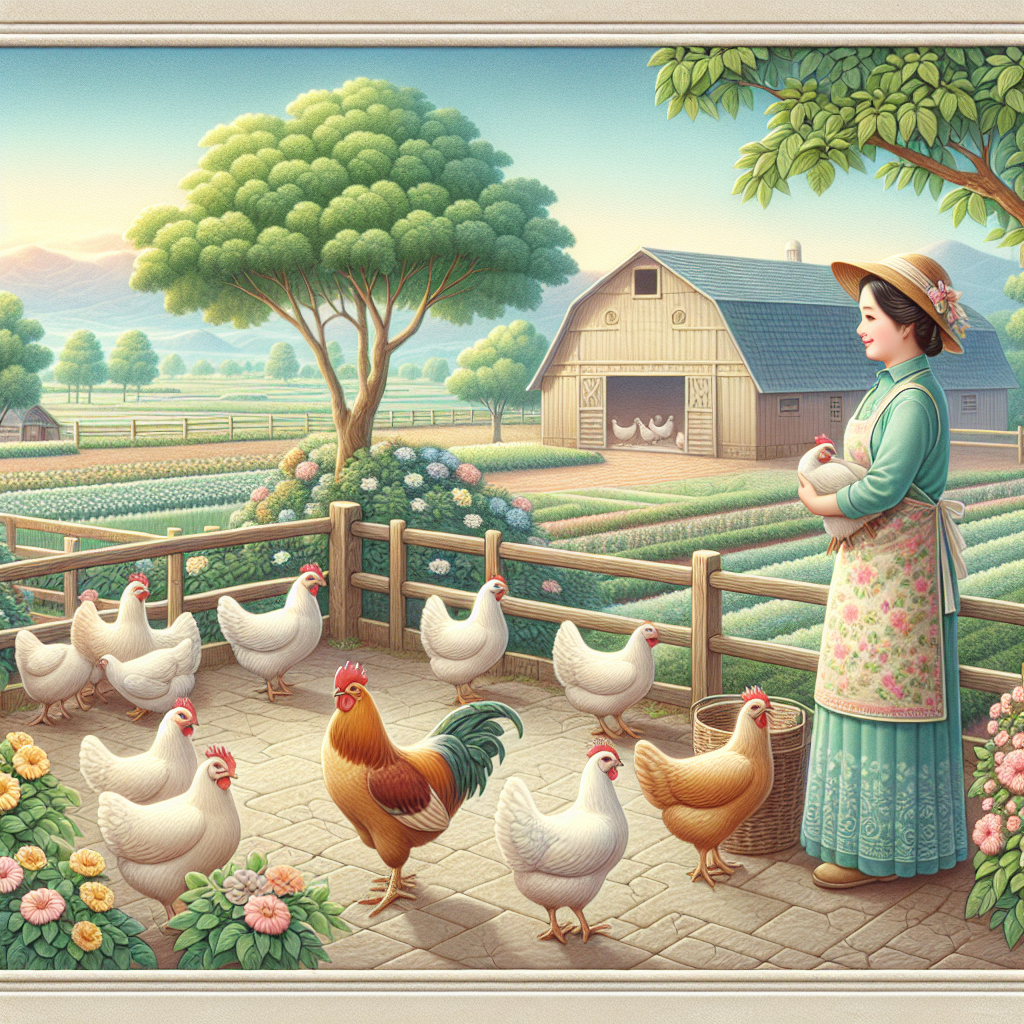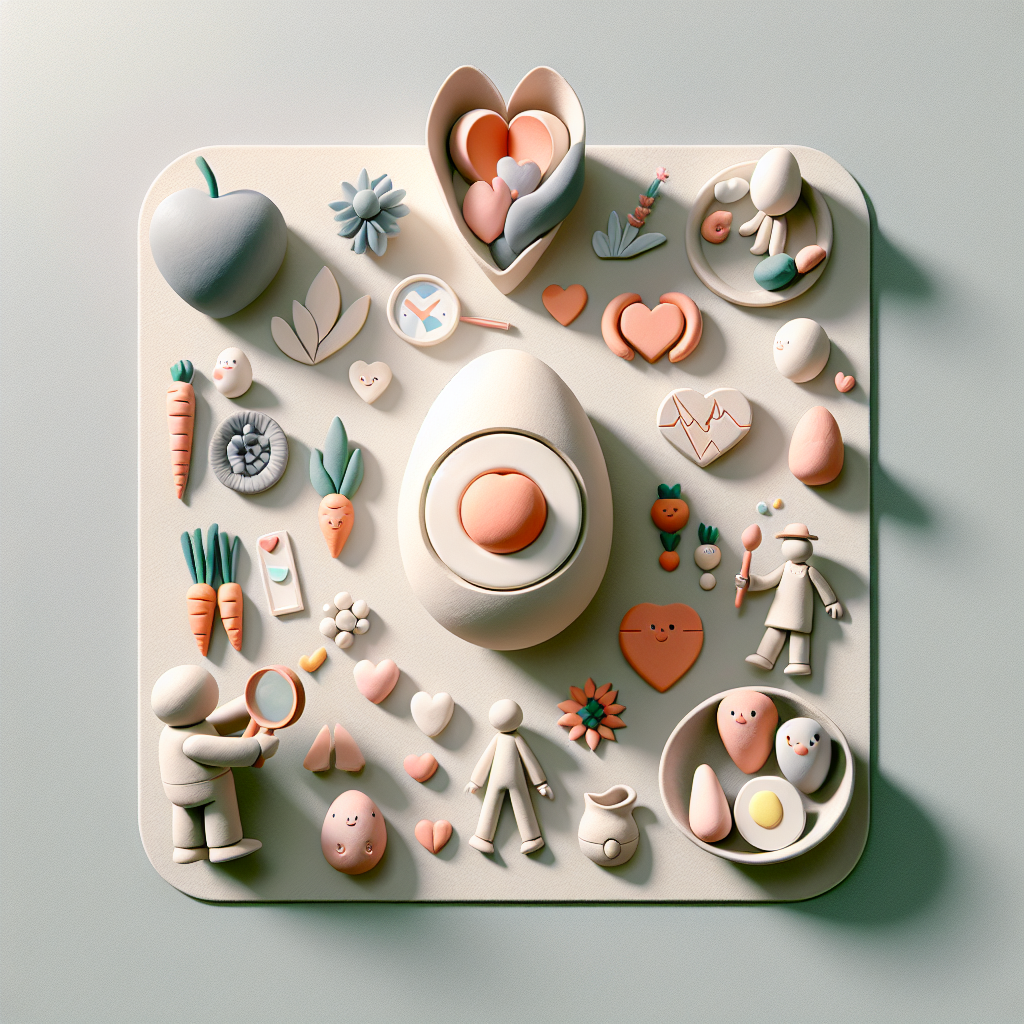Welcome, dear readers and aspiring broiler welfare warriors! Today we’re diving into a fascinating study hosted on the hallowed ground of PubMed Central, revealing insights that might make you rethink the pecking order on your farm. This study, cut from an academic yet approachable cloth, delves into how to make your broiler chickens happier and healthier, promising a win-win for your flock and your farm’s productivity.
So if you’ve ever wondered whether your clucking crew deserves a spa day or a structured fitness regime, you’re in luck. This article will explore ways to elevate broiler welfare, ensuring that your feathered friends live their best lives while providing you with excellent produce. Let’s pluck out the best bits of wisdom from this body of research—feather by feather!
Happy Chickens, Healthy Chickens: The Bro-science of Broiler Welfare
It’s All About the Environment, Darling!
When it comes to broiler welfare, environment isn’t just a fancy buzzword—it’s everything! According to our trusty study, one of the primary factors influencing broiler happiness is their living conditions. Imagine spending your life cooped up in a cramped apartment. Sounds miserable, right? Well, same goes for our chicken comrades! Ensuring ample space, clean air, and comfortable bedding isn’t just kind-hearted—it’s paramount.
Free-range or spacious housing options are the VIP suites of the poultry world. By giving your chickens plenty of legroom to stretch, roam, and forage, you’re not only boosting their morale but also aiding their physical health. Happy chickens mean fewer health issues and better growth rates. So, think of it as a chicken gym membership—worth every penny.
Feather Your Nest: Bedding and Litter Management
Now, let’s talk bedding. Unlike that old couch you’re attached to, chickens actually benefit from fresh, clean bedding on the reg. The study found that good litter management can prevent dreaded ailments like footpad dermatitis and hock burns. These health issues are akin to you having awful blisters and scrapes on your feet. Ouch!
So, what makes good litter? Materials like wood shavings, rice hulls, or even recycled paper are excellent options that offer not just comfort, but also effective moisture absorption. Clean, dry bedding is a simple yet critical factor in broiler well-being. It’s like giving them a fluffy duvet but far more useful than decorative throw pillows.
Chickens Are Born Foodies: Nutrition Matters
What’s on the Menu?
Ever had one of those days when you just can’t find the right meal to satisfy your cravings? Chickens feel that, too! The study emphasizes that nutrition is a linchpin in broiler welfare. Balanced diets that meet all nutritional needs do more than just bulk up your chickens—they enhance their overall health and happiness too.
Feeding broilers a well-balanced diet that includes all necessary vitamins, minerals, and proteins can be likened to humans eating a balanced diet. It results in more robust immune systems and better growth, keeping your flock both chipper and chirpy. Think of it as Farm-to-Feather dining at its finest. Bon appétit!
Fancy Treats for Fowl Play
Boredom can be a bane, even for chickens. Introducing enrichment activities like scatter feeding can elevate your birds from simple meal consumers to enthusiastic foragers. Imagine it as a chicken Easter egg hunt—fun, engaging, and utterly delightful.
Additionally, providing natural foraging materials like grass or bugs can stimulate their natural behaviors, keeping them physically active and mentally engaged. Less boredom means less problematic behaviors like feather pecking. In short, a happy chicken is a productive chicken, and treats are the cherry on top of their feathery sundae.
The Power of Social Clucks: Social Interaction and Mental Health
Friends, Feathers, and Fantastic Times
Social dynamics aren’t just for high school cafeterias—they’re vital in chicken coops too. According to the study, isolation can lead to increased stress and health problems. Chickens, like humans, are social creatures and benefit from positive interactions with their flock mates.
Ensuring your broilers have plenty of social engagement means observing their interactions and sometimes intervening if there’s a bully in the bunch. Yes, chickens can be bullies too! Keeping a balanced flock dynamic helps alleviate stress and promotes happier, healthier birds. So, don’t just wing it. Give your broilers the social scene they crave.
A Coop with a View: Perch and Play
Perches aren’t just for parrots—broilers love them too! Offering perches and other enrichments like dust baths can make your coop a veritable playground. The study suggests that these enrichments lead to better leg health and overall fitness.
Think of perches as chicken yoga mats letting them stretch and strengthen their muscles. Dust baths, on the other hand, act as natural exfoliants, keeping them clean and content. Your coop should be a sanctuary, not just a shelter.
Stayin’ Alive: Monitoring and Veterinary Care
Check-Ups and Chicken Docs
Regular health checks and veterinary care are monumental in keeping your broilers in tip-top shape. Much like annual doctor visits keep you in good health, regular check-ups can help spot potential issues before they escalate into significant problems.
Veterinary care is more than just vaccines; it’s about regular monitoring to ensure no health concerns are brooding in your coop. Proactive health care translates to fewer infections, happier birds, and a more productive farm. Prevention, after all, is better than cure.
Be the Chicken Whisperer
Understanding the unique behaviors and signs of wellness or illness in your flock can make you the ultimate chicken whisperer. Regular observation is key. Spotting off behaviors like lethargy, abnormal eating, or odd postures early can mean the difference between a minor hiccup and a full-blown crisis.
A little bit of attention and TLC goes a long way. Remember, awareness is your first line of defense in keeping your flock thriving.
Conclusion: Feathering the Path to Better Broiler Welfare
In summary, the study strongly advocates that by improving the environment, nutrition, and social dynamics of broilers, we can significantly enhance their welfare. Good bedding management, balanced diets, social interactions, and enrichment activities contribute to healthier, happier, and ultimately, more productive chickens.
So, whether it’s giving your broilers a fresh new perch or introducing some fun foraging games, remember: Happy chickens make for happy farmers. Let’s make our farms paradises not only for us but for our feathered friends as well. Here’s to living the chicken dream—free, fabulous, and feather-tastic!




